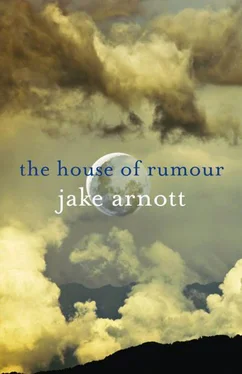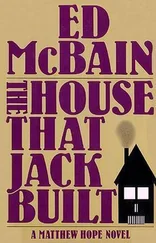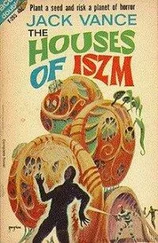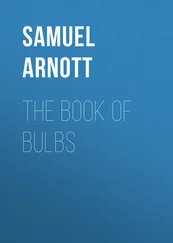There was a truth, though, behind the absurdity of these nicknames. Rudi held a latent power, always ready to be used. When they had conquered half of Europe and there was much celebration of the Tribune’s imperial status, it was reported to him that a middle-ranking party official had been heard to say: ‘Well, if Hitler is the Emperor, then Hess is his Empress.’ He had seen to it that the man had been punished for such sedition, but was secretly glad that such a blasphemous name had been given to a destined role that even within himself he had found hard to acknowledge. A feminine potency, one that could surpass all others. Yes, this was the meaning of his flight. His one great act of love for the Tribune. Like in a chess game when the queen suddenly leaps from her consort’s side across the board to break the stalemate.
Now all the pieces on his side were gone. They were all dead except him. He had been the first and the last. He waited in the summerhouse in Speer’s garden. He was ready. Ready to fly once more.
I know too much. My thoughts are dangerous to others. I read somewhere once that radio waves are never lost but fly up from the world and travel forever through space. Maybe thoughts do this too. Maybe these dangerous thoughts will somehow transmit themselves and you will receive them, whoever you are. So I call upon you, witness from some other time and place: my name is Hans Brauer, remember me. I offer you this precious information for your safe keeping. Do not let it fall into the wrong hands.
Where to begin? There is so little time. The whole story of how I first became involved with the Circle would take too long. I will start from the morning of 28 April 1941. Three days ago.
White blossom was falling from the trees in the park as I walked to the university. I recall a sense of indignation that spring would dare show its face in this godforsaken country. And a feeling of dread. Even nature has its propaganda, its scattered leaflets of lies and deceit. I knew the truth then: that white flowers are flowers for the dead.
I met Kurt in the atrium and we discussed our essays set by Professor Dietrich on the great romantic Heinrich von Kleist. I, like most of the class, had concentrated on his epic play Die Hermannsschlact with its depiction of the Battle of the Teutoburg Forest, the glorious historical victory of our German race. I had written an appallingly crass tract on national destiny and the sacrifice of the individual in the service of the Volk. But then I needed to appear to be a good student and a diligent National Socialist. Kurt, on the other hand, always seemed determined to be reckless.
He had instead chosen an obscure work for his critique and one not on the official reading list. ‘On the Marionette Theatre’, Kurt explained to me as we made our way to class, was a curious philosophical treatise by Kleist in the form of an ironic dialogue. In it one of the interlocutors asserts the astonishing notion that grace appears in a purely bodily form only in a being that either has no consciousness at all or an infinite one: that is to say, either in a puppet or a god.
In class, after a brief and sombre discussion on the romantic tradition, Kurt began loudly to argue Kleist’s strange observations on the excellent quality of ‘lifeless, pure pendulums governed only by the laws of gravity’. Mankind’s fall from grace, he went on, was in its consciousness, and the effect of eating from the tree of knowledge has made us clumsy and full of self-doubt. I felt sorry for Professor Dietrich as he attempted to steer the debate into more orthodox waters. He has already been denounced for allowing ‘degenerate’ ideas to be discussed in his department and it seemed obvious to me that Kurt was using this obscure work as a satire on the vain ideals of classicism. But most of the class appeared merely confused by his arguments.
They imagined him as a harmless fool but I knew Kurt to be fiercely intelligent (though he always tended to get carried away with wild imaginings). He had become my closest companion since my brother Ernst was taken from us.
‘Behold our puppet utopia, Hans,’ he said to me afterwards as we watched a squad of the National Socialist Students Association march out to the playing fields.
‘You should be more careful, Kurt,’ I chided him. ‘Talk like that can get you into trouble.’
‘Only a god can be equal to inanimate matter,’ he told me. ‘That’s what Kleist was really getting at, that we need to go all the way. We’ve left the Garden and the door is barred behind us, but if we make the journey all the way around the world maybe we will find an entrance at the back of Paradise. We must go on to absolute understanding.’
‘You mean that we must eat again from the tree of knowledge to regain our innocence?’
‘Certainly,’ he replied. ‘Kleist says that when that happens it will be the final chapter in the history of the world. And “On the Marionette Theatre” was his last work. A year later he shot himself and his lover on the banks of the Wannsee.’
‘Kurt.’ I lowered my voice and with a nod beckoned to my friend to bring his face close to mine. ‘Do you really believe that we live in a puppet’s utopia?’
He grinned, as if relishing a sense of intimacy and intrigue.
‘Oh yes!’ he whispered, his eyes darting to and fro.
‘And what if there were people secretly working against it?’
Kurt giggled.
‘Not you, Hans, surely?’
‘What if I was?’
His face froze into a solemn mask.
‘Hans,’ he muttered, ‘I hate this wretched state of life. I wish I could find the back door to Paradise.’
‘Then join us.’
‘What?’
‘I’ll explain tomorrow. I’ll come to your apartment.’
I left Kurt and made my way to the Mühlbergers for my violin lesson. I brooded on Heinrich von Kleist’s suicide pact. I think I mused on how sweet it would be to find someone whom one loved so much that one could die with them. I certainly feel that now. With somebody else to go with, death might not be such a cold and lonely business.
Heinz Mühlberger was a teacher and an amateur-theatre director, his wife Elsa a musician. It was my brother Ernst who first got to know them before the war, when he was in their drama group. Ernst served in Poland and came back on leave with terrible stories that he could not tell our parents as they simply would not believe him. So he discussed what he had seen with the Mühlbergers and, as he confided to them his growing sense of anger and disaffection, it soon became clear that the couple were part of a clandestine network of resistance known as the Circle.
‘Imagine a pebble dropped in a pond,’ Elsa told him. ‘It might make only a ripple but its circle expands and communicates with others.’
Ernst joined them and soon recruited me. He arranged violin lessons for me with Elsa Mühlberger as a cover so I could be used as a courier, with a false compartment in my violin case to carry messages, even anti-government leaflets. Ernst was killed in action in France last spring.
When I arrived at the Mühlbergers they were preparing a surprise for their son Melchior’s sixth birthday the next day. In a corner of the living room they were arranging a collection of tiny painted wooden animals. With green felt they had fashioned fields dotted with little trees of coloured paper. A hand mirror served as a pond for a family of miniature ducks, above which hung a mobile of the moon and stars attached to the ceiling.
The Circle had been in crisis since last summer. Every new German victory proved us wrong. All of our secret protestations against fascism seemed useless as it marched on in its unending parade of success. We had all but given up producing anti-government leaflets and instead concentrated on developing communications within our own group and with other anti-fascist networks that were supposed to exist. We were also gathering intelligence that we might pass on. Heinz Mühlberger made contact with a man connected to the Russian embassy with the code name Nebula. There were even rumours of approaches to the Circle from the British Secret Service. But the possibility of involvement in espionage only accelerated the sense of fear and desperation among us.
Читать дальше











